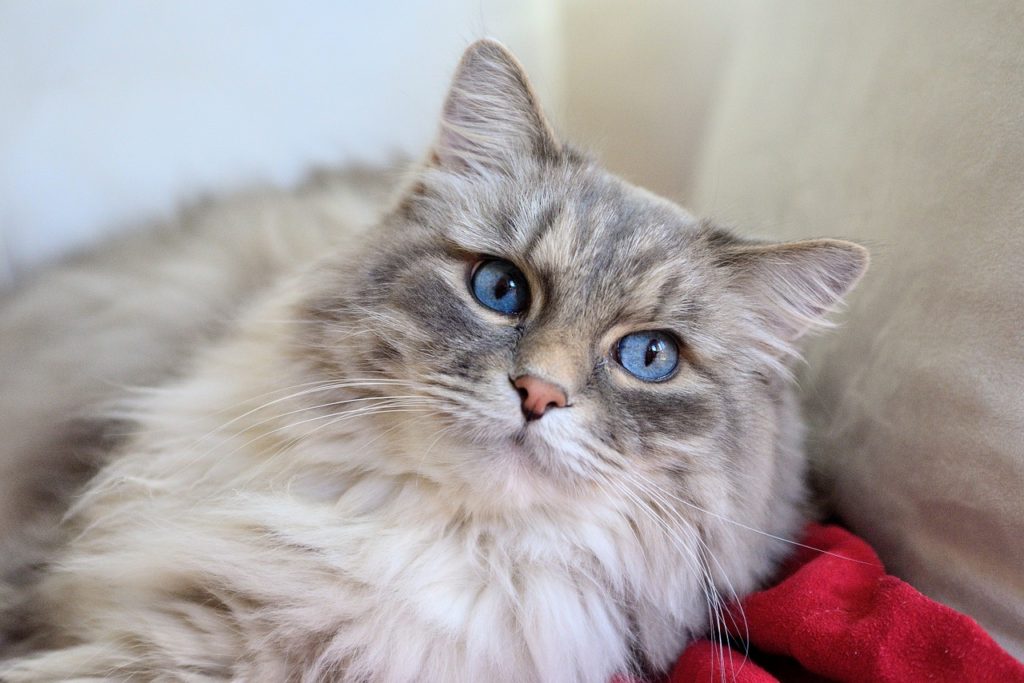Feline Heartworm Disease

Heartworm disease is transmitted to an animal through the bite of a mosquito carrying heartworm larvae, which eventually settle into the blood vessels of the lungs or within the heart itself. Although cats are less susceptible than dogs to heartworm infection, our feline friends are still very much at risk of heartworm disease.
“Cats have some innate resistance to infection, and the worms seem to prefer living in dogs rather than in cats,” said Dr. Audrey Cook, an associate professor at the Texas A&M College of Veterinary Medicine & Biomedical Sciences. “In addition, the tests we traditionally use in dogs, such as the Knotts test and heartworm antigen tests, are not very sensitive in cats as the number of worms is much lower.”
Dr. Cook explains that though more sensitive tests are now available, cats are still not routinely screened for infection. It is highly likely that many cats are infected but are simply not identified.
Although it is more probable for outdoor cats to come into contact with infected mosquitoes, indoor cats still have a not-insignificant chance of contracting the infection. “As infection requires a bite from an infected mosquito, indoor cats are less at risk overall,” said Dr. Cook. “However, we do still see this disease in strictly indoor cats, most likely occurring when an infected mosquito gets inside of the house and then bites the cat.”
Some of the most common heartworm disease symptoms include frequent coughing, weight loss, vomiting, lethargy, and difficulty breathing. However, since many of the symptoms mimic those of asthma and other disorders, affected patients may be misdiagnosed.
“Although some cats are diagnosed because they show some of the clinical signs and the veterinarian then performs the appropriate tests, many cats are diagnosed with heartworm disease after suddenly dying and only then finding the worms in the heart or lungs,” said Dr. Cook. “The blood tests available have substantial limitations, and we sometimes only confirm the diagnosis by visualizing a worm in the heart using echocardiography.”
If a veterinarian suspects heartworm disease in a cat, he or she is likely to recommend radiographs (X-rays) of the chest, along with antigen and antibody testing. Depending on these results, an echocardiogram (ultrasound examination of the heart) may be indicated.
Unfortunately, there are currently no approved treatments for feline heartworm disease. Veterinarians often recommend using medications to limit clinical signs such as coughing, and starting cats on preventative medications in order to stop future infection and hasten worm death.
“In addition, an antibiotic called doxycycline may be prescribed to the cat, as it is also thought to weaken the worms and hasten their death,” said Dr. Cook. “However, sometimes the death of the worm causes an acute and fatal reaction in the cat, so it is a very difficult disease for us to deal with.”
Indoor or outdoor, young or old, every cat is vulnerable to heartworm disease. Since there are no available treatments for this widespread infection, preventative medications administered on a regular basis are a must for protecting your feline friend.
Pet Talk is a service of the College of Veterinary Medicine & Biomedical Sciences, Texas A&M University. Stories can be viewed on the Web at vetmed.tamu.edu/news/pet-talk. Suggestions for future topics may be directed to editor@cvm.tamu.edu.


